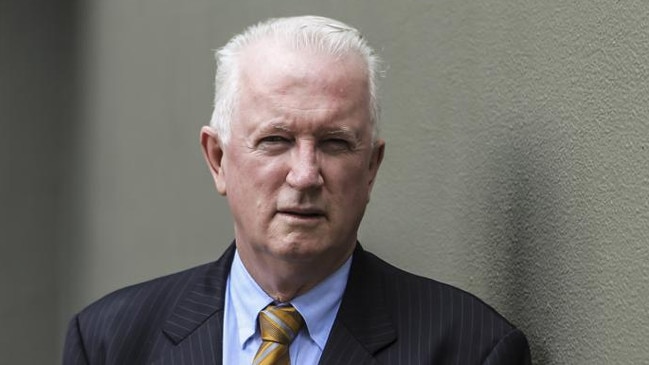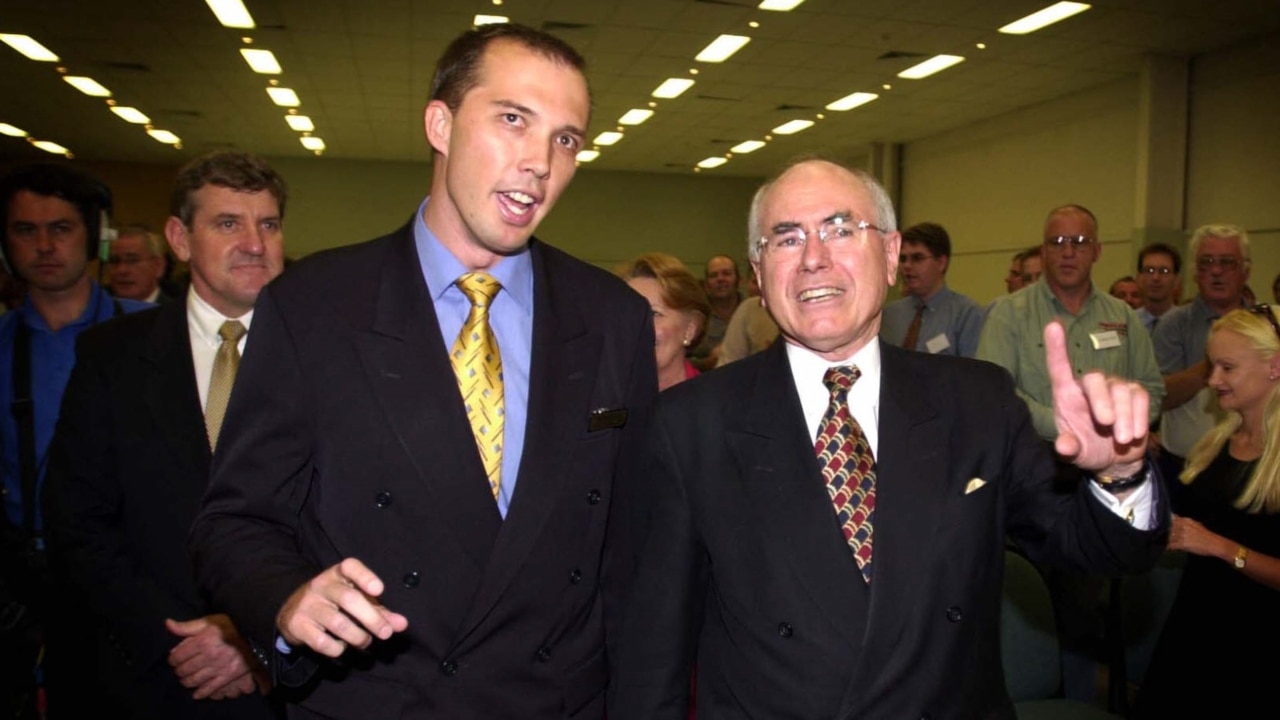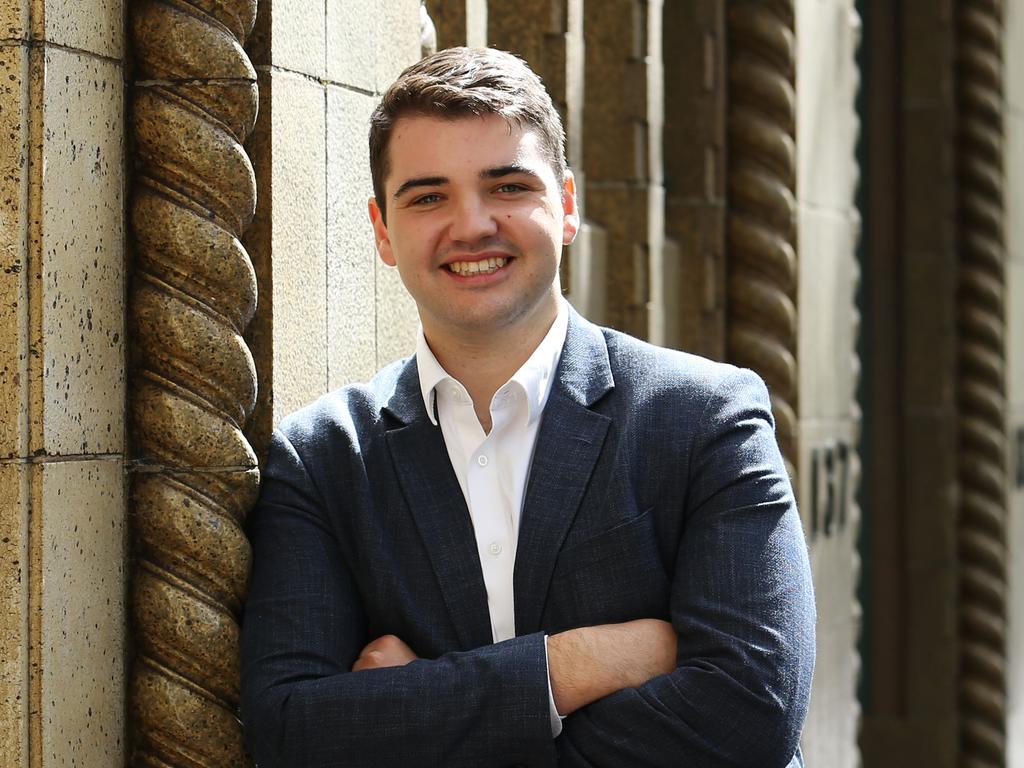LNP merger ‘is losing its way’, says Bruce McIver
The father of Queensland’s merged Liberal National Party says the division is ‘losing its way’ in a blunt admission that its emblematic status in the federal Coalition is under threat.

The father of Queensland’s merged Liberal National Party, Bruce McIver, says the division is “losing its way” in a blunt admission that its emblematic status in the federal Coalition is under threat.
Backed by then state parliamentary leader Lawrence Springborg, Mr McIver drove the 2008 amalgamation of the conservative parties at the federal and state levels in Queensland, ending decades of strife and mistrust between them.
While the pay-off has been meagre state-wise – three years in power under Campbell Newman in 2012-15 was one of only two interruptions to an era of Labor rule reaching back more than three decades – the LNP has been a powerhouse for the Coalition nationally, underpinning John Howard’s four-term government and the turbulent tenures of his Liberal successors, Tony Abbott, Malcolm Turnbull and Scott Morrison.
When Anthony Albanese returned Labor to office at last May’s federal election, Queensland still came through for the conservative side, despite the loss of blue-ribbon Liberal seats of Brisbane and Ryan to the Greens.
Counting Brisbane-based Peter Dutton, the LNP holds 21 of 30 federal seats in “fortress” Queensland, accounting for fully a third of the Coalition’s roster in the House.
Fellow Queenslander David Littleproud leads the Nationals in Canberra.
Mr Newman believes federal LNP MPs were “more in tune with the electorate and the middle class than Liberal politicians interstate”, accounting for their success in Queensland.
In a rare public intervention, Mr McIver, the party’s founding president, cautioned it was “showing the signs of losing its way.”
He said: “I base that on two facts. One is the gloss over of losing two federal seats at the last election. They did a review but they glossed over the two-seat loss. And I think that is the canary in the coalmine.
“The other one is the collapse in the ordinary membership … I understand that it’s gone down to under 10,000 and could be as low as 8000 … that’s the information I’m getting. When I left the presidency, we had 14,500.”
This will come as sobering news to the federal Leader of the Opposition, given his home division is critical to rebuilding a Liberal brand that was further tarnished by the crushing loss of the Victorian seat of Aston in a by-election three weeks ago, the first time in a century a government had prevailed over an opposition in such a contest. It leaves the Liberal Party with only three MPs in metropolitan Melbourne.
Trevor Evans, who held the seat of Brisbane for two terms from 2016 to 2022 before being defeated by 30-year-old retail worker Stephen Bates from the Greens, said Mr Dutton’s biggest test was to “stay connected to middle Australians” in a deteriorating economic climate.
Mr Evans was the last federal Liberal to hold a namesake capital city electorate. “The obvious example would be to seize the challenge around housing and home affordability for young Australians,” he said.
The strength of the LNP in the Coalition’s northern bastion is potentially doubled-edged for Mr Dutton, who knows from personal experience how contrary the Queensland party can be. Soon after the merger in 2009, he tried to parachute from his marginal division of Dickson on Brisbane’s northern fringe into rock-solid McPherson on the Gold Coast.
Despite a push by Mr McIver and head office to get behind Mr Dutton, local preselectors had different ideas. They gave the nod to Karen Andrews, a future home affairs minister under Mr Morrison, who announced this week she would quit at the next election.
Mr Dutton stayed put in Dickson and would go on to say that he became a better politician for it.
Yet what works with voters north of the Tweed doesn’t necessarily play in inner-city Melbourne or Sydney, as the rise of the teals at the 2022 poll showed.

In the absence of a Liberal-lite alternative in Queensland, the Greens had a field day in the state capital: in Ryan, formerly such a plum for the Liberals it was reserved for candidates seen as having ministerial or leadership potential, Elizabeth Watson-Brown romped home on a 9.86 per cent swing to the Greens, while Bates increased the party’s vote by 4.87 per cent in Brisbane. Labor also suffered, losing frontbencher Terri Butler in Kevin Rudd’s old seat of Griffith to the Greens’ Max Chandler-Mather.
Pointing to the seat of Brisbane, Mr McIver said: “We won Brisbane to get into government when Tony (Abbott) was there. And we lost both and in the report that was done on the election (by the LNP) … they just glossed over it. Everything was hunky-dory and I thought, ‘Gee whiz, that’s alarm bells’.”
True to form, the pugnacious Mr Newman said Liberals had to take a stand on conservative values. “What has happened is huge numbers of Liberal and Liberal National Party politicians have put up the white flag and won’t fight, won’t do what John Howard and Peter Costello did,” said the former premier, who won a record 78 of 89 seats in the Queensland parliament in 2012 before going down to Annastacia Palaszczuk-led Labor at the next state election.
“You would have to search very hard to find anybody who consistently talks about small business, private enterprise, low taxes, minimal government – they are not doing that.”
Could the merged LNP model be the answer for the Coalition nationally? Mr Springborg, the Queensland party’s current president, declined to offer a view.
“I am not going to get into that,” he said. “It is about keeping focus and … to put good candidates in the field and to show unity, which is very important to people.”
The next state election in Queensland, in October 2024, shapes as critical if the Liberals under Mr Dutton are to turn the tide against Labor ahead of a federal poll due in 2025.
If Ms Palaszczuk follows through on a promise to run, she will vie for a fourth consecutive term; her LNP opponent, David Crisafulli, needs to pick up an extra 13 seats to topple her deeply entrenched government.
The state LNP leader said an overhaul of the party’s structure and constitution in 2021 would help it match an “excellent, ruthless” Labor campaign machine.
The LNP had to cement its position on the centre-right and offer candidates that “look and sound” like modern Queensland.
“There was a real feeling that people wanted the grassroots to be unshackled and that happened,” Mr Crisafulli said.
Reflecting on the paradox of the LNP – its strength federally, yet underperformance at the state level – Mr McIver said he “shuddered” to think what could happen if the lessons of the post-merger years weren’t heeded.
“We were given an opportunity by the Queensland people,” he said of Mr Newman’s victory 11 years ago. “And we misstepped, didn’t we. Well, some people misstepped.
“Federally, it’s been very strong. I just worry that Queensland is going to turn the other way and that it is going to be much harder for us to get back into federal government.”







To join the conversation, please log in. Don't have an account? Register
Join the conversation, you are commenting as Logout